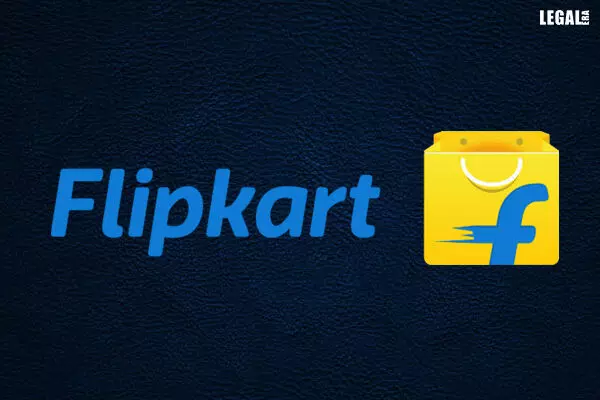- Home
- News
- Articles+
- Aerospace
- Artificial Intelligence
- Agriculture
- Alternate Dispute Resolution
- Arbitration & Mediation
- Banking and Finance
- Bankruptcy
- Book Review
- Bribery & Corruption
- Commercial Litigation
- Competition Law
- Conference Reports
- Consumer Products
- Contract
- Corporate Governance
- Corporate Law
- Covid-19
- Cryptocurrency
- Cybersecurity
- Data Protection
- Defence
- Digital Economy
- E-commerce
- Employment Law
- Energy and Natural Resources
- Entertainment and Sports Law
- Environmental Law
- Environmental, Social, and Governance
- Foreign Direct Investment
- Food and Beverage
- Gaming
- Health Care
- IBC Diaries
- In Focus
- Inclusion & Diversity
- Insurance Law
- Intellectual Property
- International Law
- IP & Tech Era
- Know the Law
- Labour Laws
- Law & Policy and Regulation
- Litigation
- Litigation Funding
- Manufacturing
- Mergers & Acquisitions
- NFTs
- Privacy
- Private Equity
- Project Finance
- Real Estate
- Risk and Compliance
- Student Corner
- Take On Board
- Tax
- Technology Media and Telecom
- Tributes
- Viewpoint
- Zoom In
- Law Firms
- In-House
- Rankings
- E-Magazine
- Legal Era TV
- Events
- Middle East
- Africa
- News
- Articles
- Aerospace
- Artificial Intelligence
- Agriculture
- Alternate Dispute Resolution
- Arbitration & Mediation
- Banking and Finance
- Bankruptcy
- Book Review
- Bribery & Corruption
- Commercial Litigation
- Competition Law
- Conference Reports
- Consumer Products
- Contract
- Corporate Governance
- Corporate Law
- Covid-19
- Cryptocurrency
- Cybersecurity
- Data Protection
- Defence
- Digital Economy
- E-commerce
- Employment Law
- Energy and Natural Resources
- Entertainment and Sports Law
- Environmental Law
- Environmental, Social, and Governance
- Foreign Direct Investment
- Food and Beverage
- Gaming
- Health Care
- IBC Diaries
- In Focus
- Inclusion & Diversity
- Insurance Law
- Intellectual Property
- International Law
- IP & Tech Era
- Know the Law
- Labour Laws
- Law & Policy and Regulation
- Litigation
- Litigation Funding
- Manufacturing
- Mergers & Acquisitions
- NFTs
- Privacy
- Private Equity
- Project Finance
- Real Estate
- Risk and Compliance
- Student Corner
- Take On Board
- Tax
- Technology Media and Telecom
- Tributes
- Viewpoint
- Zoom In
- Law Firms
- In-House
- Rankings
- E-Magazine
- Legal Era TV
- Events
- Middle East
- Africa
Delhi High Court admonishes Flipkart

Delhi High Court admonishes Flipkart
Restrains it from allowing sellers to take advantage of the 'V Tradition' hallmark
The Delhi High Court, in the context of e-commerce platforms, has held that permitting a third-party seller to 'latch on' to a best-seller's name or trademark is nothing but 'riding piggyback'.
The bench comprising Justice Pratibha M Singh stated, "It amounts to taking unfair advantage of the goodwill that resides in the plaintiff's mark and business. We have no doubt that 'latching on' by unauthorized sellers results in and constitutes 'passing off' as known in the brick-and-mortar world. It is a mode of encashing upon the reputation of the plaintiff, which he has painstakingly built."
Passing an interim injunction against Flipkart, the court restrained the e-commerce platform from allowing any third-party sellers from 'latching on' to the trademark 'V Tradition' or its product listings. This was to ensure that unauthorized sellers were unable to misuse it.
The suit was filed by Akash Aggarwal, the sole proprietor of an entity operating under the trademark 'V Tradition'. It deals in selling women's clothing on various retail e-commerce platforms, including Flipkart, the defendant.
The plaintiff informed the court that when a third-party seller placed a listing on Flipkart, the platform's software suggested 'V Tradition' products as one of the most popular listings and 'best-sellers'. It allowed the sellers to add various products to their own listings, along with the plaintiff's products and photographs, by way of the 'Opportunities' option under the 'Listings' tab.
The plaintiff claimed that various third-party sellers were portraying themselves as 'V Tradition' and were riding on the popularity of its products and designs.
The court observed, "E-commerce platforms provide an alternate platform to small and medium entrepreneurs to showcase their products and conduct their businesses in a profitable manner. However, certain features on these platforms can also cause damage to such entities and entrepreneurs. As is clear from the present case, one such feature is described as 'latching on' provided by Flipkart."
The court said it showed that Flipkart was permitting third-party sellers to 'latch on' to the best sellers in one particular segment of products, resulting in misuse of the plaintiff's mark.
Justice Singh ruled, "Such a feature cannot be allowed to be used or offered to the detriment of the owner of the brand or the person who has created the original product. Consent and authorization of the brand owner and the listing owner are required before such conduct by any seller is permitted."
She further stated that any infringing third-party product listings would be liable to be taken down. The court directed Flipkart to ensure that the 'latching on' feature was disabled qua the mark 'V Tradition' till the next date of hearing (November 11).
The court also directed that the URLs of 45 third-party sellers, who were already using the mark 'V Tradition', must be disabled or taken down.



